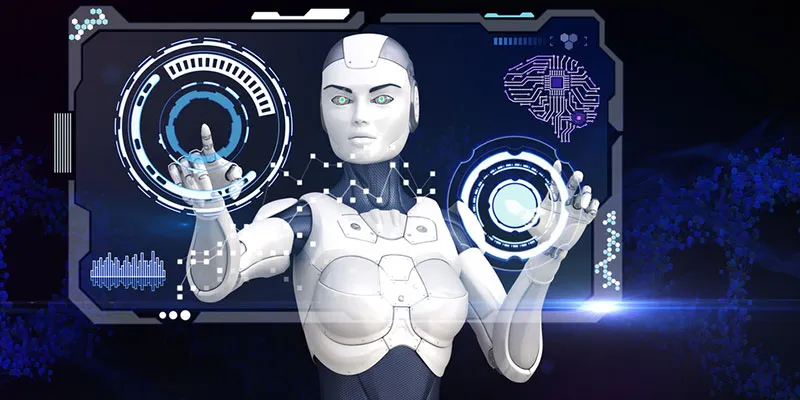Artificial intelligence in Blockchain, manipulative chatbots to define 2018: FICO study
The year 2018 will be one of artificial intelligence “operationalisation” as more services integrate AI systems in their core offerings.
The age of artificial intelligence (AI) is upon us. Every aspect of life will soon be altered — and sometimes defined — by AI.
FICO, a Silicon Valley-based data analytics and software firm, has studied the potential impact of AI in 2018. In essence, AI will come to form the core of many sectors and will be “operationalised” by organisations.

Here are three AI trends for the year.
AI and Blockchain will meet
The rising use of Blockchain technology in the financial services sector will bring about a time when AI will be used to search through customer relationship data. New, automated analytic techniques will scan for patterns in contracts and transactions of people. With more enriched customer data at their disposal, banks and financial institutions will be able to offer better, and highly personalised, services to customers.
“Blockchain technology will soon record ‘time chains of events,’ as applied to contracts, interactions, and occurrences. Data event chains will create new opportunities for graph analytics and novel new AI algorithms to consume relationship data at scale,” Scott Zoldi, Chief Analytics Officer at FICO, wrote in the report.
Rise of ‘defensive AI’
With online fraud management and cybersecurity gaining in prominence, 2018 will bring upon an era of ‘defensive AI’ that will protect systems from malicious AI and machine learning programmes. While AI has been used by banks and financial institutions to curb fraud for a while now, hackers, in some cases, have been able to replicate existing AI models and break into systems.
In order to prevent that, “We will see new systems that will seed their outputs with ‘faint signatures’ to mislead, confuse or identify the attackers learning the AI system’s response,” Zoldi states. Defensive AI has been identified as a key requirement by McAfee (security software giant) as well in its 2018 security forecast.
In an October 2017 report, FICO explained how the system works. “Defensive AI models selectively deceive or return incorrect outputs, if the models believe they are being monitored. They might return scores that are backwards, or create patterns that make the adversary modelling data set inaccurate and consequently the attacker’s AI less effective.”
Manipulative chatbots
We’ve already had instances of AI outsmarting humans. Google-owned AI startup DeepMind, for instance, terrified the tech world in 2016, when a smart robot it built defeated famous Asian board gamer Lee Se-Dol in the Go series. Subsequently, it led to serious questions on how AI could spiral out of control and pose a threat to humankind in the future.
FICO says that in 2018, AI chatbots that are gaining in popularity will not only understand humans better, but also end up manipulating them. “By quickly understanding the tone, content and predicted highest-value conversational paths to meet various objectives, chatbots using AI can also learn the magic words to sway our attitude, actions and possibly elicit en masse reactions,” Zoldi explained.
While that may be a downside, more sophisticated chatbots are expected to bring down costs of routine customer care activities and improving overall customer experience.







